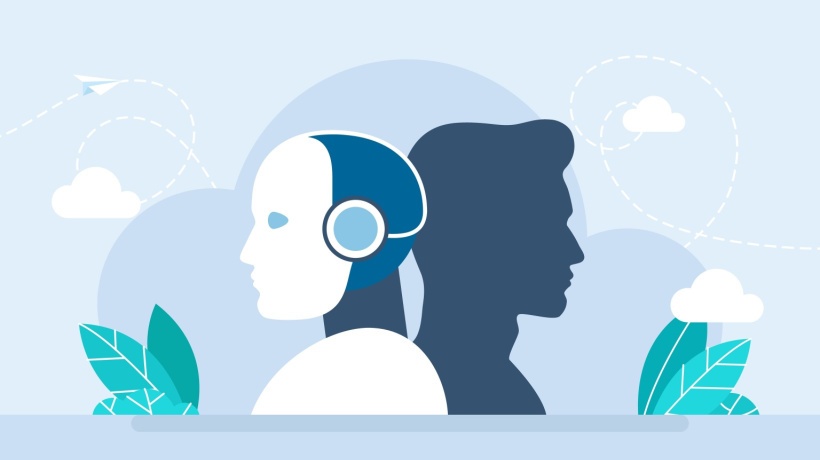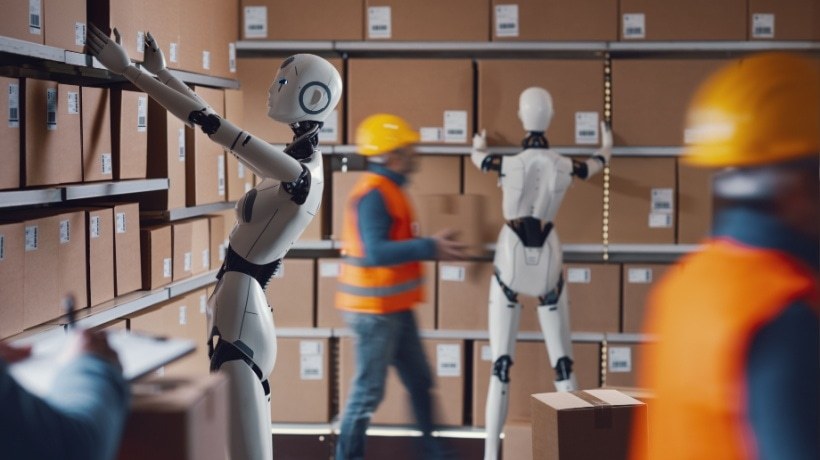"Human Work" Is The Work That Only Humans Can Do
Remote work and learning are not just options anymore but requirements in the response to the COVID-19 pandemic. Millions who had never experienced eLearning are now more comfortable with the concept and the practice. We should take advantage of the new familiarity with eLearning to help build a new, large-scale learning system to prepare people for a new world of work—work that capitalizes on our unique skills as humans.
As technology and Artificial Intelligence take over more and more of the predictable, replicable aspects of the workplace, humans will be needed more than ever in roles that require uniquely human traits and skills—things like collaboration, empathy, compassion, and interpersonal communication.
In this new world of “human work,” conventional skills and knowledge still matter, but among the most important is the ability to solve problems in fast-changing environments. With AI and other technologies extending ever more deeply into fields such as retail, health care, education, and hospitality, the ability to work effectively with others is paramount. What we call the "work of the future" increasingly means using technology to leverage our people-serving capacity to solve problems—work that machines can't do alone.
We now live in a world in which disruptive change—and now a pandemic—forces the rapid reevaluation of jobs and careers. We must move quickly to redesign education and training—no longer separate phases of life—into an integrated system focused on delivering the learning we all need: the learning that prepares us for human work. In short, we need a system that will deliver continuous, career-long learning—a sustained method for obtaining new knowledge and skills, new ways of community engagement, and new ways of relating to each other.
eLearning can and must play an important role as we redesign our education and workforce training systems into a broad, integrated, career-long system that is focused on individual learners. To do that, however, eLearning must evolve.
eLearning has always offered countless opportunities to teach specific skills. Turn on a laptop and learn to play the guitar, improve your chess game, or write a short story. However, to provide greater service to our society and our economy, eLearning needs to do a better job of providing organized learning in pursuit of specific goals—whether obtaining a recognizable work credential or an academic degree.
Also, today’s eLearning opportunities often are solo pursuits, guided by the impulses of the individual learner. To better promote human work, eLearning can and should do more to build communities of learners. After all, the work of the future will increasingly be done through collaboration and cooperation—even if accomplished remotely, via technology. eLearning formats and techniques are uniquely suited to support the trend toward greater teamwork.
8 Ways eLearning Can Help
Here are 8 ways eLearning can improve to usher in the emerging world of human work:
- eLearning should better monitor, measure, and describe what has been learned through a specific course or series of courses.
- Professional credentialing—for everything from welding and plumbing to teaching and speechwriting—needs to be offered more widely through eLearning courses.
- eLearning should be tied closely to the instruction of skills that are in demand in growing fields—often those, such as information technology and health care, that are evolving quickly in response to enhanced digital systems.
- eLearning must emphasize higher-level skills such as critical thinking, communications, and conflict resolution—skills required for the work only humans can do.
- eLearning should provide clear descriptions of what one has learned so that it is easily understood by an educational institution or a prospective employer.
- Often a solitary experience, eLearning needs to better develop communities of learners who can teach each other important lessons, gleaned from online and real-life experiences.
- Communities could be built around specific sets of skills (such as helping professions like health care) or developed abilities (such as creativity).
- Interdisciplinary communities, brought together through virtual and real-life experiences, could demonstrate that eLearning need not be a solo exercise. In fact, it can be especially powerful as a shared effort, a group enterprise.









